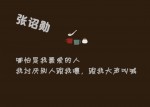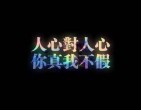
英语作文万能句型毫无疑问【一】
In short, it can be said that
英语作文万能句型毫无疑问【二】
比赛开始了。我率先来了个“当头炮”,可是他却只将炮向前移了两格,白送的卒不要,太可惜了,我就让炮吃掉它。可是吃了后我才恍然大悟,我的炮只能在中间待着,一动不能动。而他的炮却冲入我的地盘胡作非为。“哐、哐、哐”三声,我的爱将们—车和马就全部壮烈殉国了。我实实在在的'陷入被动只能防守。
“将军!”他喊道,原来我的将帅已被那个炮封了,我急忙滑士解围。“将军!”还将?不可能。我一看,看到了令我哭笑不得的一幕:在我提炮后三步,我的炮就被它的车吃了,我仅剩的一个过河马也被车吃了。我六神无主,闷头和他下,我的象、士、卒……慢慢的被吃掉,我气的怒发冲冠,可又能怎么办呢?同学们都劝我认输,我却仍然怀着宁不屈的心,皮赖脸的和他顽抗。“哐!”我只剩下一位光杆司令了,我仍坚持着,坚持着,但最后还是输了。
虽然输了,但我还是一副光荣的表情呢!因为我和“象棋之王”下了一场。他是谁呢?他就是韩炳煌。
英语作文万能句型毫无疑问【三】
1。 It is considered /thought that人们(有人,大家)认为
2。 It is generally /usually accepted /agreed/recognized that普遍(一般,通常)认为
3。 It is believed that有人(人们,大家)相信
4。 It is well—known that大家知道(众所周知)
5。 It is said that据说(有人说)
6。 It is learned that据闻(悉)
7。 It is supposed that据推测
8。 It is estimated/predicted/calculated that据估计(预计)
9。 It must be pointed that必须指出
10。 It is reported that据报道
11。 It must be admitted that必须承认
12。 It will be seen that可见(可以看出)
13。 It will be seen from this that由此可见
14。 It is understood that不用说(都知道)
15。 It can not be denied that无可否认
16。 It has been proved/demonstrated that已经证明
17。 It may be confirmed that可以肯定
18。 It may be safely said that可以有把握地说
19。 It is sometimes asked that人们有时会问
20。 It is expected that/hoped that人们希望
21。 When it comes to要说到,要谈及
英语作文万能句型毫无疑问【四】
(一)改写一般疑问句:
(1)原句中有be动词的,将be动词提前,其他顺序不变。
例如:Thisisacat.变为Isthisacat?
(2)原句中有情态动词的(can/may/shall/would)将情态动词提前,其他顺序不变。例如:Hewouldlikeapie.变为Wouldhelikeapie?
(3)原句中是一般动词的,在句首加助动词do或dose(用于主语是第三人称动词单数的句子),其他顺序不变。例如:Iplaytheguitar.变为Doyouplaytheguitar.
(4)原句中的some变any。
注:以情态动词开头的一般疑问句,并且要求对方做肯定回答的`some不变。
(5)原句中的第一人称改为第二人称。例如:Iamanurse.变为Areyouanurse?
(6)以dose开头的一般疑问句,原来动词的第三人称单数形式要变回原形。例如:Hereadsastorybook.变为Dosehereadastorybook?
(二)改写否定句:
(1)原句中有be动词的,直接在be动词后面加not。例如:Itisadog.→It’snotadog./Itisn’tadog.
(2)原句中有情态动词的,直接在情态动词后加not。
例如:Iwouldlikeahotdog.→Iwouldnotlikeahotdog.
(3)原句中是一般动词的,在一般动词前加don’t或doesn’t(用于主语是第三人称单数的句子),doesn’t后面用原型。例如:Iseethreehamburgers.→Idon’tseethreehamburgers.
原句中的some变any例如:Ihavesomebreadan
dmilk.→Idon’thaveanybreadandmilk.
(4)以let开头的祈使句,如果是letus或letme,直接在其后加not;如果let后面其他人称代词宾格(you、him、her、them、it)就在let后面加助动词don’t。例如:Letusgotothepark.→Letusnotgotothepark.再如:Letthemdohomework.→Don’tletthemdohomework.
(三)对划线部分提问:
对划线部分提问,就是先把一个陈述句的划线部分去掉,然后变为一个特殊疑问句:一是特殊疑问句+一般疑问句;
二是特殊疑问句+陈述句(对主语或主语的定语提问,therebe结构除外)
⑴划线部分是人,用who提问。
⑴划线部分是主语,用who提问,who后面的动词要用第三人称单数形式。如:Whois;Wholikes;Whohas?
方法:who+原句的剩余部分
例如:①HelenandMikearelisteningtomusic.
→Whoislisteningtomusic?
②Ihavesomemodelplanes.
→Whohasanymodelplanes?
⑵划线部分是表语,用who提问。
方法:Who+剩余部分的一般疑问句形式
⑵划线部分是事或者物,用what提问。
方法:what+剩余部分的一般疑问句形式。
注:如果原句是therebe句型,直接用What’s+地点状语来提问。例如:①Wewouldliketobuysomethingsforaparty.
→Whatwouldyouliketobuyforaparty?
②Therearealotofcakesintheplate.
→Whatisintheplate?
⑶划线部分是物主代词或名词所有格,用Whose提问。
方法:⑴划线部分是主语的定语时,Whose+剩余部分
例如:Ourclassroomisbright.
→Whoseclassroomisbright?
⑵划线部分是表语或表语的定语时,Whose+剩余部分的一般疑问句形式例如:①ThewomanisSuYang’steacher.
→Whoseteacheristhewoman?
注:对某部分的定语提问,被修饰的部分跟随特殊疑问句往前提②ThispurseisYangLing’s.
→Whosepurseisthis?
⑷划线部分是地点,用where提问。
方法:where+剩余部分的一般疑问句形式
例如:TheyarehamingaMathslessonintheclassroom..
→WherearetheyhavingaMathslesson?
⑸划线部分是“多少”,用howmany或howmuch提问。
方法:⑴句中是可数名词的用Howmany+剩余部分的一般疑问句形式例如:Therearefifteentreesintheplayground.
→Howmanytreesarethereintheplayground?
⑵句中是不可数名词的用Howmuch+剩余部分的一般疑问句形式例如:Ihaveaglassofjuiceforbreakfast.
→Howmuchjuicedoyouhaveforbreakfast?
⑹划线部分是时间,用when或whattime(具体的几时几分)提问。方法:⑴when+剩余部分的一般疑问句形式
例如:SuYangandSuHaiareathomeonSundaymorning.
→WhenareSuYangandSuHaiathome?
⑵问具体的时间直接用Whattimeisit?或What’sthetime?问
例如:It’sthreeforty-five.
→Whattimeisit?或What’sthetime?
英语作文万能句型毫无疑问【五】
1 A good case in point is ...
2 As an illustration, we may take ...
3 Such examples might be given easily.
4 ...is often cited as an example.
英语作文万能句型毫无疑问【六】
考辅P42
1.IgaveTomthebook.//
2.Heboughthismothersomeflowers.//
3.Thebridgewasbuiltbyworkerslastyear.//
4.Wehavetofinishtheworktoday.//5.Hewilldohishomeworktomorrow.//
6.Wecleantheroomseveryday.//7.Thewriterspent3yearsonthebook.//
8.Itisabookwithalotofbeautifulpictures.//
9.Thebooksoldverywellduringthefirstweek.//firstweek.
10.Marywastheonlyoneintheoffice.//
11.Shefinishedherworkat10o’clock.//Shedidn’12.Shehadtotakeataxihomebecauseitwastoolate.
13.LizaandMikearrivedattheGreatWallintwohours.
14.Theywerehappytogettothetop.//
15.TheyenjoyedthemselvesontheGreatWall.//
16.ThepostmansentSusanandTommyapaperbox.
17.Theyopeneditandfoundapresentfromtheirfriend.
18.Theybothlikedthepresentandfeltveryhappy.
19.Alicedidn’tfeelwelltoday,soshewenttothehospital.
20.Thedoctoraskedhersomequestions.//
21.Thedoctordidn’tgiveheranymedicineintheend.
(全真1)
1.ThecapitalAirporthasbeeninusefor20years.//
2.ThecapitalAirportisthelargestoneinChina.//
3.Ihavenevertakenaplane.MyfriendLiPing,either.//
(全真2)
1.Fathergave$20formetobuysomebooks.//
2.IwasexcitedwhenIsawsomanygoodbooksinthebookstore.
3.ButsomebookswouldcostmorethanIhave.//
ButIdidn’//(全真3)
1.ManyChinesefriendswenttotheparty.2.Tonywasgivenalotofpresentsbyhisfriends.//Tony’
3.SeeinghisChineseteacheratthepartymadeTonyveryhappy.//(全真4)
1.Iwanttoeatsomething.//2.Therefrigeratorisempty.//3.Bobspentfifteenyuanonthehamburger.///(全真5)
1.Mr.Wangdoesn’tworkinthatfactoryanylonger.//
2.Mr.Wanglefthomeearlierinordertocatchthebus.3.Mr.Wangfindsitnoteasytogetalongwiththatyoungguy.//(专家1)
1.Manypeoplewentshoppingyesterday.
2.Janespent4hourstobuyNewyeargifts.//
3.Shewassotiredthatshecouldn’twalkanylonger.//
(专家2)
1.Myfriendssaidtome,“Areyoufree?”
2.Shewantedmetogoshoppingwithher.
3.Shethinksitapleasuretogoshoppingwithafriend.



















